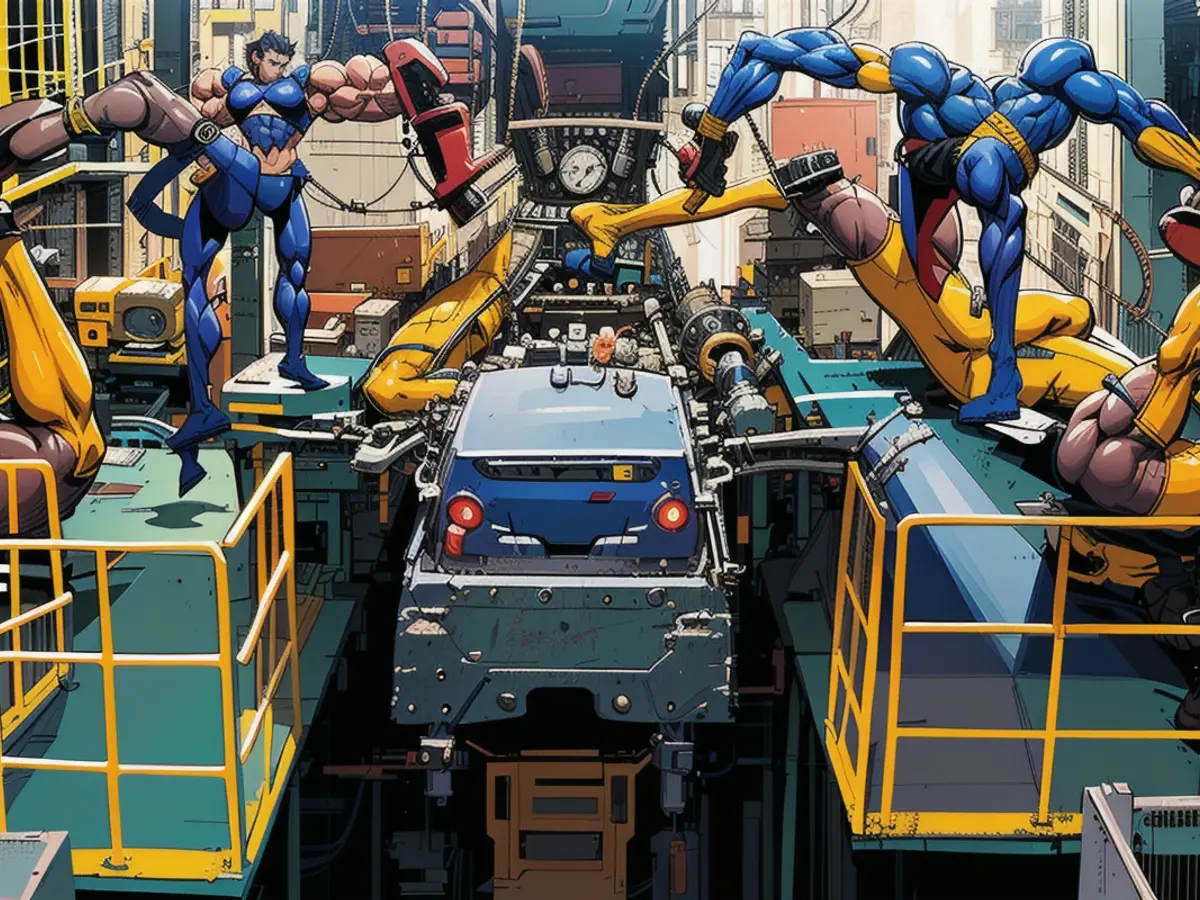Morocco sends more vehicles to Europe compared to China.
Not too long ago, Morocco had almost no presence in the car industry. Now it's the largest in Africa. However, the age of electric cars is quickly approaching - with new competitors.
Three times a day, a cargo train ferries hundreds of vehicles from a rural region in northern Morocco to a port on the Mediterranean. These cars are shipped from a Renault factory outside Tangier and make their way to car dealerships in Europe. Fiscal incentives for companies and the improvement of infrastructure, like this cargo train line, have helped Morocco turn its automotive industry from insignificant to the biggest in Africa in less than two decades. The North African country now exports more vehicles to Europe than China, India, or Japan and has the potential to produce 700,000 cars a year.
And the government is determined to maintain its status as a significant car manufacturer in the future by actively pursuing electric car projects. However, it's unclear how it will stay competitive in this new era of automation in car production.
There are more than 250 companies currently operating in Morocco that manufacture cars or auto parts. The auto industry now accounts for 22% of the country's GDP and generates export earnings of around 12.9 billion euros. French carmaker Renault, the largest private employer in Morocco, produces almost all its popular Dacia Sandero models in the North African nation. The government invites companies seeking to outsource production to cheaper regions that they can receive approval for new factories and complete construction within a short timeframe - possibly just five months.
"Fifteen years ago, we exported no cars at all. Now it's the leading export sector in the country," said the Minister of Industry and Trade, Ryad Mezzour. He highlighted that Morocco has improved its ports and highways and offers subsidies of up to 35% for the construction of factories in rural areas outside Tangier - where Renault now produces both Clio and Dacia Sandero models.
Chinese, Japanese, American, and Korean factories produce seats, engines, shock absorbers, and wheels in Tanger Automotive City, a large industrial park with auto parts manufacturers. Stellantis produces Peugeots, Opels, and Fiats in its factory in Kenitra.
Investing heavily in the development and maintenance of an automotive sector was part of a 2014 industrialization plan. It aimed to create jobs for a young and growing workforce - as foreign carmakers were on the hunt for locations to produce cars and car parts.
Major carmakers pay lower wages to unionized factory workers in Morocco than they would in Europe. However, even with wages equivalent to one-quarter of the French minimum wage of 1,766.92 euros per month, the pay is above the average income in Morocco. The industry employs 220,000 people.
"Qualified auto workers"
Abdelmonim Amachraa is a Moroccan expert on supply chains. He believes that investments in infrastructure and training qualified workers would have positioned the industry to attract automotive manufacturers looking to expand their supply chains for electric vehicles. Morocco is seeking investments from both the East and the West, trying to lure industry players from China, Europe, and the United States. They all aim to produce affordable electric cars quickly in large quantities.
Chinese company BYD, the world's largest manufacturer of electric vehicles, has announced plans to build factories in Morocco twice, but there's been no implementation so far.
Renault is preparing to shift toward electric cars in Morocco. Mohamed Bachiri, the director of operations for the French manufacturer in the North African country, says that the company's success in Morocco could make it an attractive destination for investments from other producers, particularly in terms of electric cars. The industry is likely to grow, as manufacturers can source a large portion of the auto parts - now over 65% - directly in Morocco. The country also has a significant advantage in this regard since it boasts experienced and skilled auto workers, which many other outsourcing destinations lack.
However, with the United States and European countries urging their auto manufacturers to re-shore production of electric cars, it's uncertain if Morocco will be able to maintain its position. The country has always prided itself on being a free market without tariffs or trade barriers. But it now faces the challenge that other countries are taking measures to protect their domestic car industries to secure advantages in the production of electric vehicles.
For instance, France and the United States have introduced tax credits and other incentives for consumers to buy electric cars produced in Europe and the United States. "We live in a new era of protectionism," says Mezzour. This makes it more challenging for countries like Morocco, which have invested heavily in open, free, and fair trade.
Read also:
- Lack of snow also opens up new opportunities for winter tourism
- Abrupt end to e-car subsidies
- The chemical industry has little confidence
- Intersport boss hopes for sales boom through sporting events
- Despite Morocco's success in exporting cars to Europe, the country is still exploring partnerships with Chinese companies like BYD to produce electric vehicles, aiming to stay competitive in the shifting automotive landscape.
- With Europe and the United States introducing incentives to boost the production of electric cars within their borders, it remains to be seen if Morocco can maintain its position as a significant car manufacturer, given its commitment to free trade.
- Good news for Morocco's auto industry: Renault, the largest private employer in the country, plans to shift towards electric car production in Morocco, potentially attracting more investors seeking to capitalize on the skilled labor force and favorable conditions for electric vehicle manufacturing.
Source: www.ntv.de








